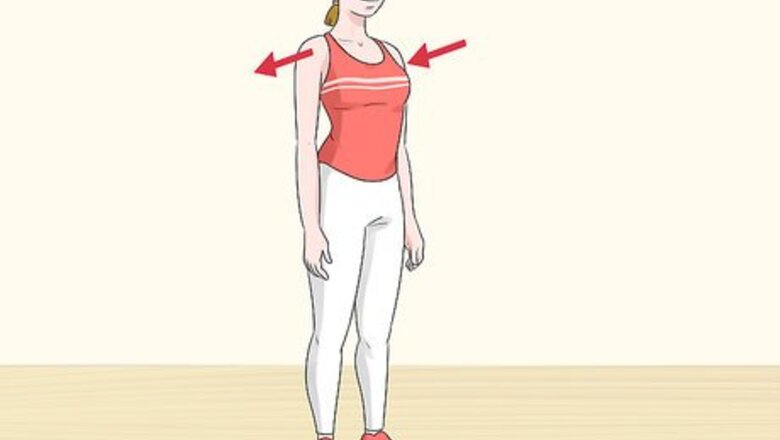
views
Breathing Properly
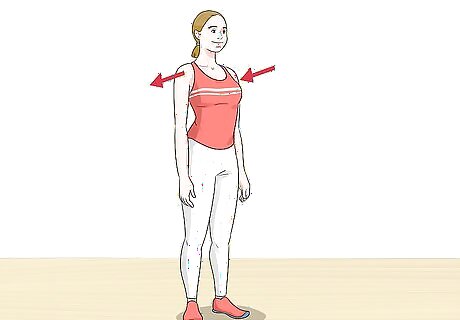
Stand up straight with your shoulders back. Your shoulders should be back, but not raised, and your chin should be parallel with the floor. Keep your feet shoulder width apart and your knees loose instead of locked. Your chest shouldn’t be puffed out, but it should be naturally lifted so your belly can expand. Proper posture will allow you to fill your lower lungs with air. When most people breathe, they just fill up their upper lungs.
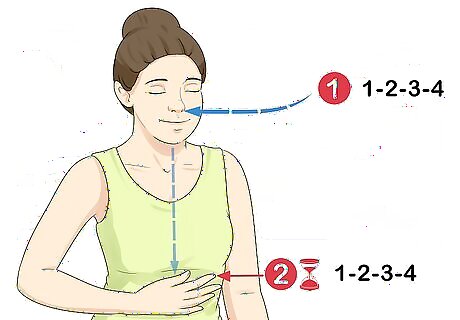
Inhale through your nose and fill your belly with air. Breathe in slowly through your nose as you count to 4. Hold your hand on your belly to make sure it expands and fills with air. You should also feel your breath in your lower back and the muscles between your ribs. When you’ve finished inhaling, hold your breath for a 4 count.
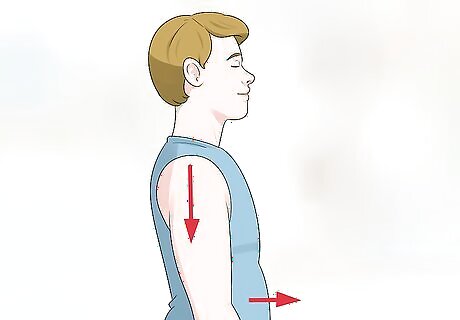
Keep your upper chest and shoulders still as you inhale. Your chest shouldn’t puff out and your shoulders shouldn’t rise as you inhale. As your belly gets round and your lungs fill with air, your lower ribs should expand outward, but don’t let your chest and shoulders rise into a shrug.
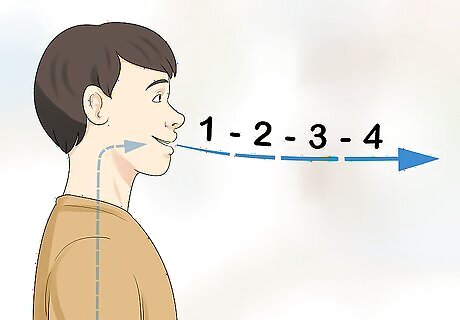
Count to 4 as you exhale through your mouth. After counting to 4 as you hold your breath, breathe out by flexing your abdominal muscles. Try to exhale evenly for a 4 count. Instead of blowing out lots of air at first, try to exhale in a steady stream.
Trying Breathing Exercises
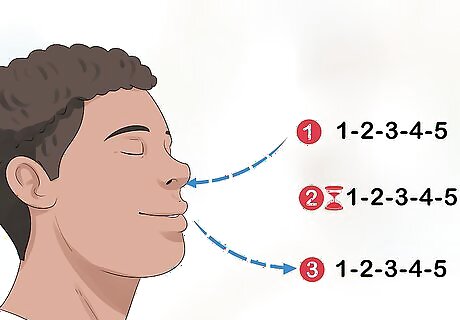
Increase each of your counts as you practice proper breathing. The easiest breathing exercise is to simply inhale, hold your breath, and exhale for longer counts. First, increase your count to 5, then 6, and eventually work your way up to 10. Do 3 or 4 sets of inhales, holds, and exhales for each count. Make sure to maintain the proper breathing techniques by filling your belly and keeping your shoulders down for this and any other exercise.
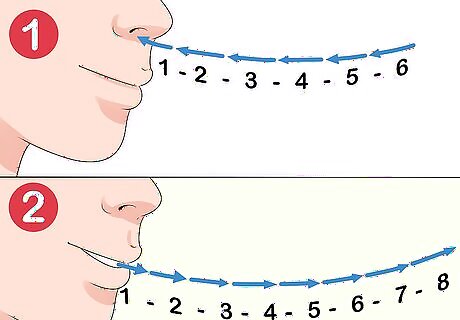
Decrease your inhale counts and increase your exhale counts. Inhaling for a shorter count and exhaling for longer is great exercise for your diaphragm. Start by doing a few sets of 6 count inhales and 8 count exhales. Proceed to counting to 5 as you inhale and to 10 as you exhale, then gradually work your way up to inhaling for a 2 count and exhaling for a 20 count. Work on filling your lungs with air in a shorter amount of time and controlling your exhale to blow out in a steady stream for a longer amount of time.
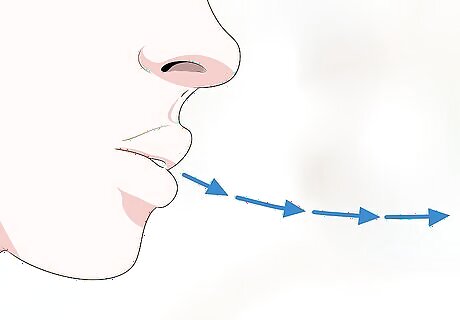
Exhale very slowly as if you were blowing through a thin straw. For this exercise, imagine there’s a candle in front of your face. Your goal is to blow out so slowly and gently that your breath doesn’t make the candle flicker. Fill your lungs with air, then exhale through your imaginary straw until you empty your lungs. Repeat this exercise 10 times.

Add letters and sounds as you exhale. Start adding vocalizations to your breathing exercises. Say “B,” “F,” “S,” and “Sh,“ as you exhale. Extend the sound throughout your entire exhale by saying, “Beee-,” or “Esss-.” Try mixing up your counts for this exercise. Inhale for a 4 count, exhale for 8, then inhale for 2 and exhale for 6. Randomize your counts to mimic how you’d have to switch up your breathing during a song.

Introduce tone by humming as you exhale. Hum at a note in your middle register as you exhale. You can also try pronouncing syllables, like “Ba,” or “La.” Extend the sound evenly as you exhale: use your breath to keep the tone and volume steady throughout your exhale. Once again, try switching up your inhale and exhale counts for this exercise.
Getting Healthy and Cutting Bad Habits
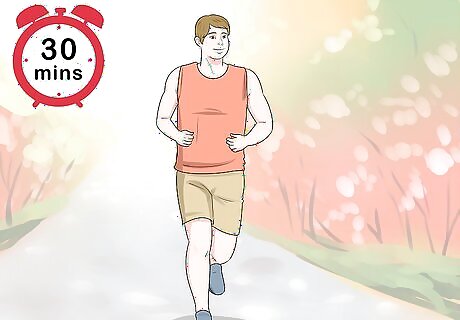
Try walking, jogging, and biking. Aerobic exercise is essential for singers, so get out there and put your legs and lungs to work. You should aim for 30 minutes daily, but it’s especially helpful to exercise on rehearsal days. The easiest and most affordable forms of aerobic exercise are walking, jogging, and biking.
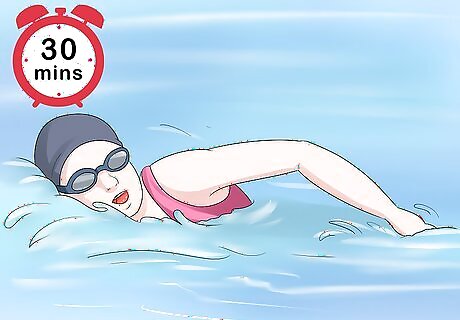
Start swimming laps. If you have a nearby YMCA, community pool, or body of water, try to swim vigorously for 30 minutes. While it might take more effort and money to get to a pool or lake, swimming is the ideal form of exercise for singers. Water’s density makes your muscles do extra work, and holding your breath between strokes improves your breath control.
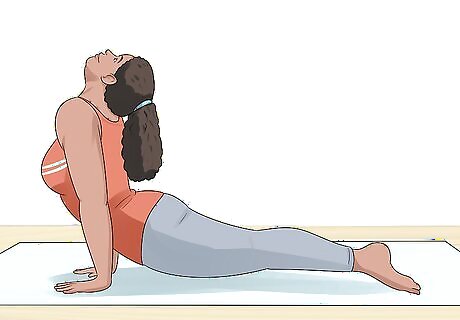
Take up yoga or a martial art. Yoga is great for singers, as it improves breath control, focus, and coordination. Tai Chi and other martial art forms can also help you develop a sense for the connections between breath, energy, and concentration. You can look for yoga and Tai Chi videos on YouTube and other services. You could also look for a local studio and sign up for classes. Yelling is a part of some martial art forms, so ask your instructor if you can skip the screaming to preserve your voice.
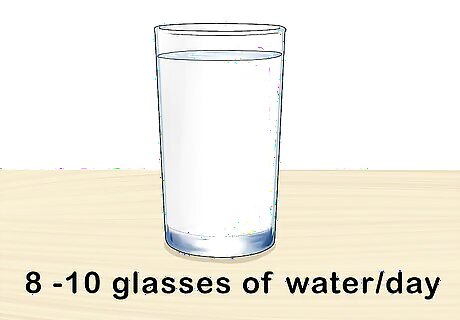
Stay hydrated. Drink at least 8 to 10 glasses of water per day. Dehydration can wear out your vocal folds. Cool or lukewarm water is better than ice cold water, especially right before or during rehearsal. Cold water reduces your ability to precisely control your vocal folds.
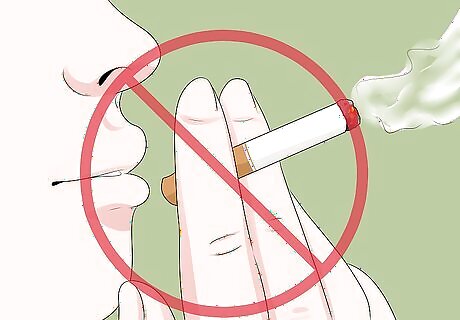
Quit smoking. Smoking decreases your lung capacity and damages your vocal folds (better known as vocal cords). If you smoke anything, do your best to quit. In addition, try to avoid being around secondhand smoke.




















Comments
0 comment